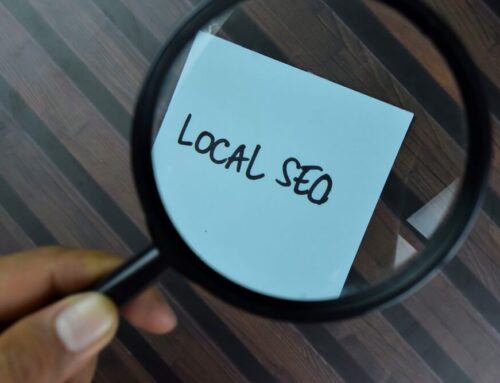Are you a small business owner looking to get started with SEO? Columnist Marcus Miller has written up this starter guide for beginners outlining what you need to know.
Being a small business is tough. Many businesses fail in the first year, and many more will not make it to the five-year mark. But even established businesses can fail if they are unable to adapt to changing times.
Marketing is difficult — digital marketing even more so. And the black-box nature of SEO can make it the most difficult form of marketing your business. Yet when done well, there is little that can compete with strong, organic search engine visibility to promote your small business. Organic listings build trust with local customers, and all the best business relationships are built on a foundation of trust.
In this article, I want to look at SEO as a marketing tactic specifically for small businesses. I will share everything we have learned working on hundreds of small business SEO projects. My intention is to arm you, as a business owner, with the knowledge and power to make the right decisions when implementing an SEO strategy — whether you choose to do some or all of the SEO work yourself, employ an in-house SEO or outsource the work to an SEO agency.
It is a given that search engines and SEO will play an important role in the future of your business. And the goal of this article is to use my 20 years of SEO experience to help you make the best possible decisions when putting SEO to work for your small business.
What on earth is SEO?
In 2017, this is a hell of a question. Is SEO market research? Keyword research? Is it building a perfectly optimized website? Is it copywriting? Is SEO content marketing via search engines? Building links and authority? Is SEO conversion rate optimization and analytics? Is SEO ensuring you present a highly positive and credible image to potential customers? Is SEO usability and UX? Is SEO mobile optimization?
The answer to all of these is yes. And much more. SEO is a complex, layered discipline. There are different types of SEO and many factors that can influence your SEO. An experienced SEO consultant will help you identify the type of SEO that is important for your business. This will be influenced by the industry you’re in, the geography in which you operate, and your SEO strengths, weakness, opportunities and threats.
A helpful way to look at this is to consider that a search engine is just a referral engine — a tool that provides the best answers to users’ questions. For your small business to truly succeed in this search landscape, you must do everything in your power to be the best result. Whatever your prospective customers need to make a decision, be driven to provide it. This has the benefit of helping you convert more clicks to customers as well, so this is a sensible all-around approach.
For small businesses, the main SEO areas to consider will be:
- Website. A well-structured, fast, mobile-friendly website is essential.
- Content. Your content should help demonstrate why a customer should choose you.
- Content marketing. Informational blog content can put you in front of a wider audience.
- On-page. Basic optimization is important so think page titles and meta descriptions.
- Local SEO. Local businesses need to consider local SEO best practices.
- Authority building. Links are still highly correlated with strong search engine results.
- Credibility. Case studies, portfolios, reviews and testimonials help you clinch the deal.
SEO can be complicated. So understanding your current situation and marketplace is key to making the right decisions. And fortunately, for smaller businesses we can often strip away much of the complexity, and the conversation ends up being about content, links and website design.
Is SEO right for your small business?
Search engines are a key way in which we all now look for products and services. So, in the majority of cases, search is a great way to get in front of potential customers. This is not to say that it is the right marketing approach for every business at any given time.
The following should be considered:
Budget. You may not have the budget to compete with established competitors.
Speed. SEO can take a long time to deliver results, especially in competitive markets.
Competition from ads. Ads now occupy a lot of screen space.
Big competitors. Some search terms are dominated by titans, and it can be hard to compete.
So, while organic search visibility is always desirable, it should not be relied upon solely, especially if you need results fast and have a long way to go. Typically, other methods like PPC advertising can deliver fast results while you start running the SEO turtle race.
Generally, some form of SEO is certainly a good fit for most businesses, but the real question here is whether SEO is a good fit for your requirements right now. Consider your budget, speed and starting position to determine when this valuable tactic should be introduced. (I covered the topic of how to determine if SEO is a good fit for your business in a previous post.)
In many cases, a combined approach using PPC and SEO can deliver the best results. PPC delivers quick results at a cost, and when your organic visibility builds, you can look at dialing back on your paid search marketing.
So, you may not rank quickly with SEO, but the sooner you start investing in your SEO strategy, the sooner you can benefit from this highly popular marketing channel.
How to choose an SEO provider
This is tough and does require some groundwork on your part. Does the freelancer or agency have a good reputation and positive reviews? Do some digging, and don’t take things at face value. Who is the owner of the business? Who are the SEO consultants? Are they known and respected in the industry?
The following questions can provide a good starting point to generate a discussion with potential SEO companies. Certainly, understanding these questions and potential answers make you a more educated buyer and as such will help ensure your SEO company becomes a secret weapon rather than a wooden leg!










